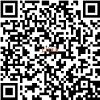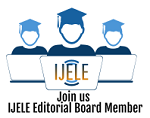(2) Andi Reza Perdanakusuma
(3) Nur Aini Cahyati
*corresponding author
AbstractChatGPT, an artificial intelligence-based technology developed by KeywordsChatGPT; artificial intelligence; students perception; qualitative study; undergraduate thesis writing
|
DOIhttps://doi.org/10.31763/ijele.v0i0.1771 |
Article metrics10.31763/ijele.v0i0.1771 Abstract views : 158 |
Cite |
References
Z. A. Cahnia, N. Darubekti, and F. T. Samosir, “Pemanfaatan Mendeley Sebagai Manajemen Referensi pada Penulisan Skripsi Mahasiswa Program Studi Perpustakaan dan Sains Informasi Universitas Bengkulu,†Palimpsest: Jurnal Ilmu Informasi dan Perpustakaan, vol. 12, no. 1, pp. 48–54, Jun. 2021.
I. Siswanto and Y. G. Sampurno, “Faktor-Faktor Penghambat Pengerjaan Tugas Akhir Skripsi Mahasiswa Pendidikan Teknik Otomotif FT UNY,†Jurnal Taman Vokasi, vol. 3, no. 1, 2015.
S. B. Seto, M. T. S. Wondo, and M. F. Mei, “Hubungan Motivasi Terhadap Tingkat Stress Mahasiswa Dalam Menulis Tugas Akhir,†Jurnal Basicedu, vol. 4, no. 3, pp. 733–739, 2020.
R. Agustina and A. Ikhlas, “Analisis Kesulitan Mahasiswa Menulis Karya Ilmiah di STKIP Muhammadiyah Sungai Penuh,†Pendekar: Jurnal Pendidikan Berkarakter, vol. 5, no. 4, pp. 6–11, Dec. 2022, doi: 10.31764/pendekar.v5i4.11565.
I. Purnama, F. Edi, R. R. P. Megahati S, and T. Wijanarko, “ChatGPT for Teachers and Students in Science Learning: A Systematic Literature Review,†Jurnal Penelitian Pendidikan IPA, vol. 9, no. 10, pp. 760–765, Oct. 2023, doi: 10.29303/jppipa.v9i10.5259.
M. Rozady and Y. P. Koten, “PLUGIN CHATGPT: MITRA DALAM PENELITIAN,†JATI (Jurnal Mahasiswa Teknik Informatika), vol. 8, no. 1, pp. 716–721, 2024.
W. Suharmawan, “Pemanfaatan Chat GPT dalam Dunia Pendidikan,†Education Journal: Journal Educational Research and Development, vol. 7, no. 2, pp. 158–166, 2023.
Z. Munawar, H. Soerjono, N. I. Putri, and A. Dwijayanti, “Manfaat Kecerdasan Buatan ChatGPT Untuk Membantu Penulisan Ilmiah,†Tematik, vol. 10, no. 1, pp. 54–60, 2023.
J. Julianto, “PEMANFAATAN CHAT GPT OPEN AI TERHADAP ANALISIS DAN STRATEGI DALAM MENINGKATKAN PERFORMA PENJUALAN PRODUK SECARA DIGITAL,†JURSIMA, vol. 12, no. 1, Jan. 2024, doi: 10.47024/js.v11i3.749.
E. Manik, Y. Marbun, R. A. B. Simanjuntak, and R. J. Simarmata, “Video Youtube dalam proses pembelajaran dengan ChatGPT,†Jurnal Pendidikan dan Konseling (JPDK), vol. 5, no. 2, pp. 2297–2303, 2023.
F. K. Ramadhan, M. I. Faris, I. Wahyudi, and M. K. Sulaeman, “Pemanfaatan Chat GPT dalam dunia pendidikan,†Jurnal Ilmiah Flash, vol. 9, no. 1, pp. 25–30, 2023.
M. M. Rahman and Y. Watanobe, "ChatGPT for education and research: Opportunities, threats, and strategies," Applied Sciences, vol. 13, no. 9, p. 5783, 2023.
J. Salmi and A. A. Setiyanti, “Persepsi Mahasiswa Terhadap Penggunaan Chatgpt di Era Pendidikan 4.0,†Jurnal Ilmiah Wahana Pendidikan, vol. 9, no. 19, pp. 399–406, 2023.
T. Mairisiska and N. Qadariah, “Persepsi mahasiswa ftik iain kerinci terhadap penggunaan chatgpt untuk mendukung pembelajaran di era digital,†Jurnal Teknologi Pembelajaran Indonesia, vol. 13, no. 2, pp. 107–124, 2023.
V. Braun and V. Clarke, "Using Thematic Analysis in Psychology," Qual Res Psychol, vol. 3, no. 2, pp. 77–101, 2006.
D. Sugiyono, “Metode penelitian pendidikan pendekatan kuantitatif, kualitatif dan R&D,†2013.
X. Zhai, "ChatGPT user experience: Implications for education," Available at SSRN 4312418, 2022.
J. Qadir, "Engineering education in the era of ChatGPT: Promise and pitfalls of generative AI for education," in 2023 IEEE Global Engineering Education Conference (EDUCON), IEEE, 2023, pp. 1–9.
H. Margono, M. Saud, and M. Falahat, "Virtual Tutor, Digital Natives and AI: Analyzing the impact of ChatGPT on academia in Indonesia," Social Sciences & Humanities Open, vol. 10, p. 101069, 2024.
M. Farrokhnia, S. K. Banihashem, O. Noroozi, and A. Wals, "A SWOT analysis of ChatGPT: Implications for educational practice and research," Innovations in Education and Teaching International, vol. 61, no. 3, pp. 460–474, 2024.
Y. Xiao and Y. Zhi, "An Exploratory Study of EFL Learners' Use of ChatGPT for Language Learning Tasks: Experience and Perceptions," Languages, vol. 8, no. 3, pp. 1–12, 2023.
C. Yu-Han and C. Chun-Ching, "Investigating the impact of generative artificial intelligence on brainstorming: A preliminary study," in 2023 International Conference on Consumer Electronics-Taiwan (ICCE-Taiwan), IEEE, 2023, pp. 193–194.
H. Alkaissi and S. I. McFarlane, "Artificial hallucinations in ChatGPT: implications in scientific writing," Cureus, vol. 15, no. 2, 2023.
E. Kasneci et al., “ChatGPT for good? On opportunities and challenges of large language models for education," Learn Individ Differ, vol. 103, p. 102274, 2023.
L. Zhou, A. C. Wu, P. Hegyi, C. Wen, and L. Qin, "ChatGPT for scientific writing—The coexistence of opportunities and challenges," J Orthop Translat, vol. 44, p. A1, 2024.
Refbacks
- There are currently no refbacks.
Copyright (c) 2025 Riswan Septriayadi Sianturi, Andi Reza Perdanakusuma, Nur Aini Cahyati

This work is licensed under a Creative Commons Attribution-ShareAlike 4.0 International License.

International Journal of Education and Learning
ISSNÂ 2684-9240
Published by Association for Scientific Computing Electronics and Engineering (ASCEE)
W : http://pubs2.ascee.org/index.php/ijele
E : zalik@ascee.org

This work is licensed under a Creative Commons Attribution-ShareAlike 4.0 International License.






















